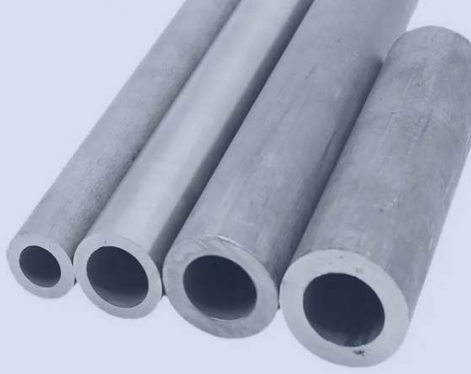This method includes the setting of the furnace temperature and holding time in two passes, specifically:
Setting of furnace temperature for the first pass;
According to the wall thickness of the seamless steel pipe, in the upper limit temperature range of the temperature of the two-phase region of the steel pipe Ac1~Ac3, the temperature of the steel pipe steel is 835℃, so the furnace temperature of the first pass can be set at 800℃ Keep the temperature between ~835℃ for 30~60 minutes, and then air-cooled out of the furnace;
The second pass furnace temperature setting; after the above two passes of tempering and softening, the Rockwell hardness HRC value drops to 10-16, reaching the load of the cold rolling mill entering the next process; through the above The steel pipe in the cold rolling process is processed by the quenching and tempering process. The longitudinal tensile yield strength of the steel pipe can reach 1068~1172MPa, the Charpy V-shaped transverse impact value can reach 70~100J at 0℃, and the longitudinal impact value can reach 100~ 140J.
Both passes are heated by constant temperature, and the temperature of the heating furnace is constant, which is convenient for continuous large-scale production operation and control, and has high production efficiency. Alloying elements are not precipitated in a large amount in the grain boundaries, which improves the situation that the strength and toughness of the traditional furnace cold softening process are significantly reduced after the quenching and tempering treatment.
Setting of furnace temperature for the first pass;
According to the wall thickness of the seamless steel pipe, in the upper limit temperature range of the temperature of the two-phase region of the steel pipe Ac1~Ac3, the temperature of the steel pipe steel is 835℃, so the furnace temperature of the first pass can be set at 800℃ Keep the temperature between ~835℃ for 30~60 minutes, and then air-cooled out of the furnace;
The second pass furnace temperature setting; after the above two passes of tempering and softening, the Rockwell hardness HRC value drops to 10-16, reaching the load of the cold rolling mill entering the next process; through the above The steel pipe in the cold rolling process is processed by the quenching and tempering process. The longitudinal tensile yield strength of the steel pipe can reach 1068~1172MPa, the Charpy V-shaped transverse impact value can reach 70~100J at 0℃, and the longitudinal impact value can reach 100~ 140J.
Both passes are heated by constant temperature, and the temperature of the heating furnace is constant, which is convenient for continuous large-scale production operation and control, and has high production efficiency. Alloying elements are not precipitated in a large amount in the grain boundaries, which improves the situation that the strength and toughness of the traditional furnace cold softening process are significantly reduced after the quenching and tempering treatment.









